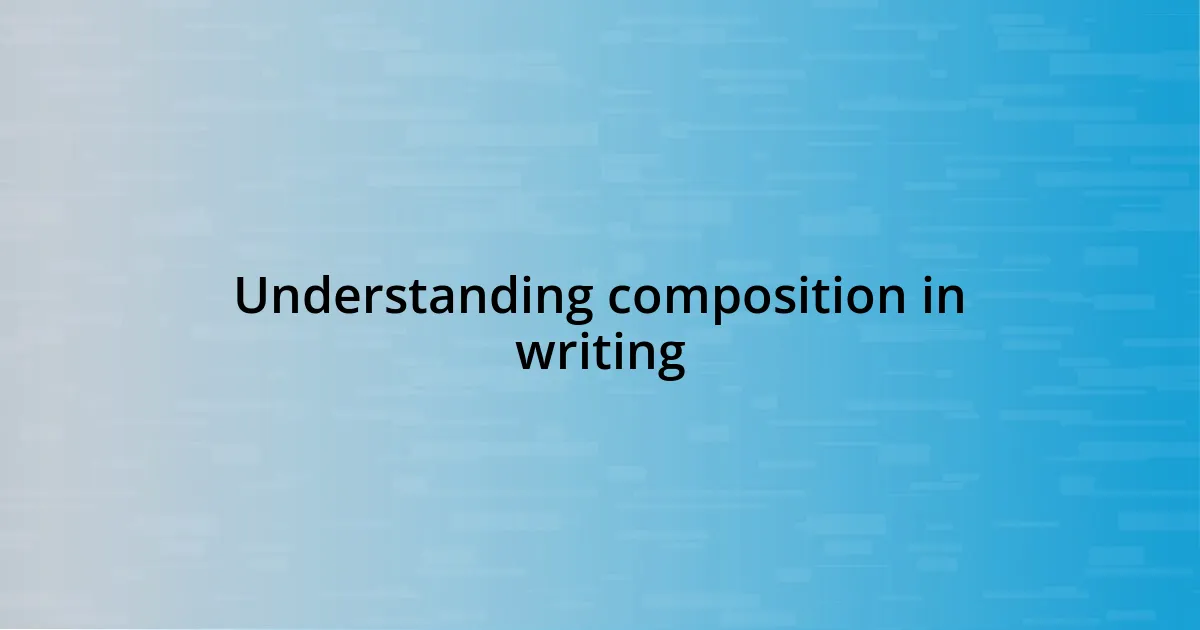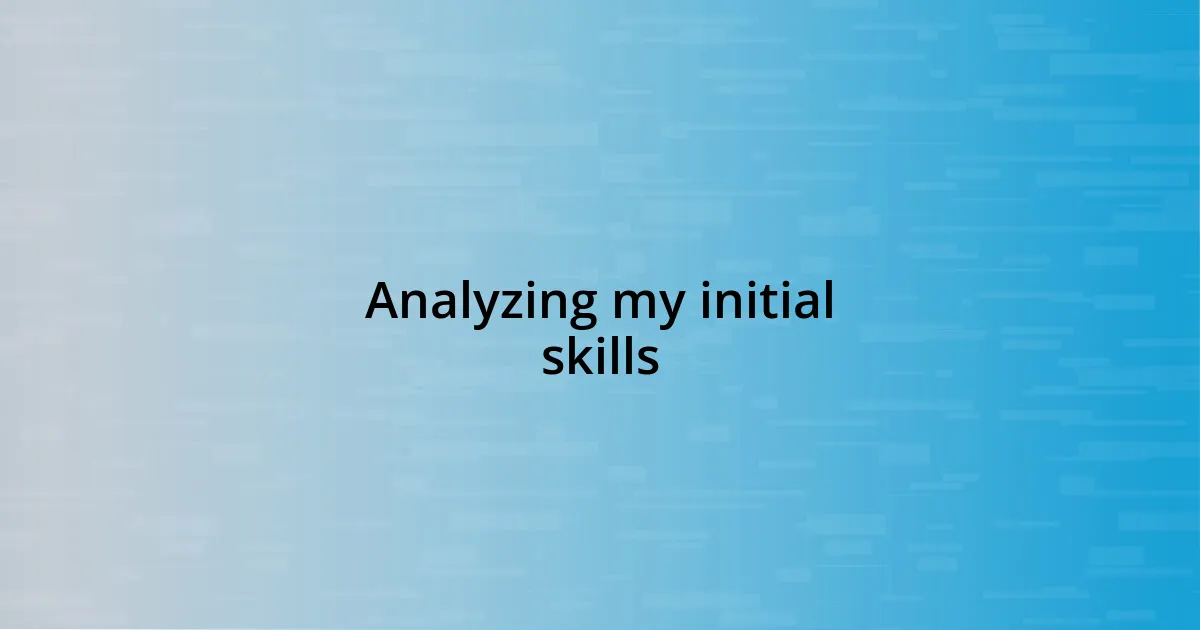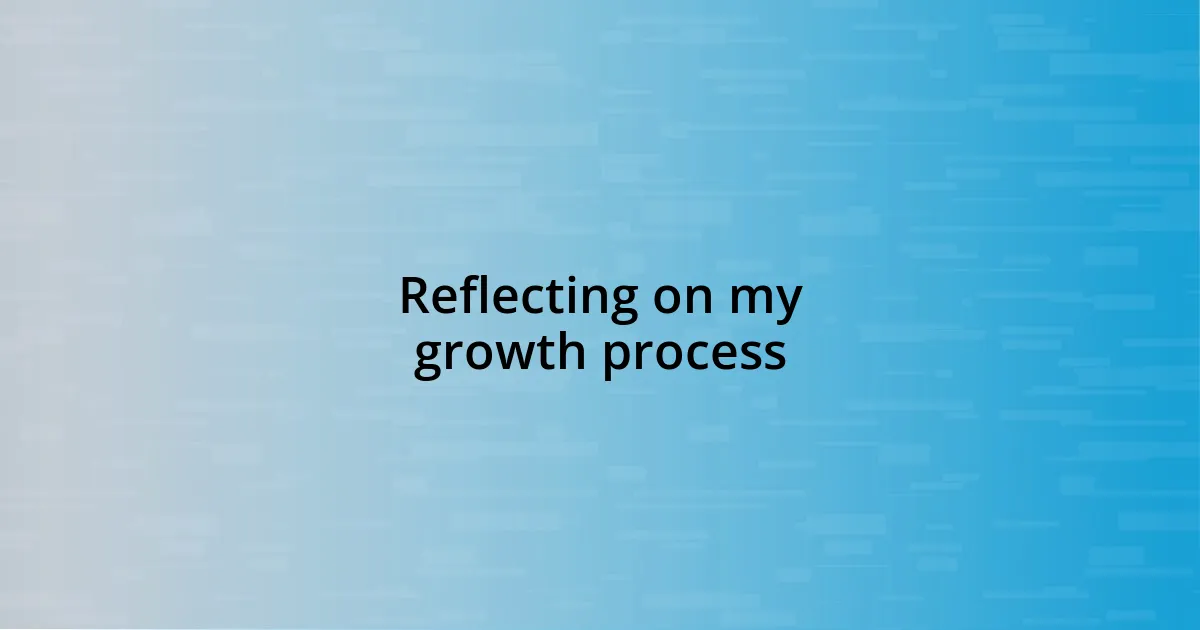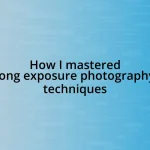Key takeaways:
- Understanding composition involves effectively structuring ideas, leading to a smoother writing process and enhanced reader engagement.
- Setting realistic, bite-sized writing goals and utilizing time limits can help manage stress and foster progress.
- Seeking feedback from peers offers valuable insights that can illuminate blind spots and enhance writing skills.
- Incorporating advanced techniques, such as layering metaphors and focusing on rhythmic patterns, enhances expression and engages readers on a deeper level.

Understanding composition in writing
When I first started writing, I often struggled with the idea of composition. I thought it was merely about putting words on a page, but I soon realized it’s much more nuanced. Composition is like a puzzle; each piece needs to fit perfectly to create a coherent picture.
Understanding composition means grasping how to structure your ideas effectively. I remember when I faced a daunting task—typing a lengthy essay. As I organized my thoughts into a clear outline, it felt like the fog in my brain lifted. I began to see how interconnected my themes were, which made the writing process much more enjoyable and less stressful.
Have you ever read something that just clicked? That’s the power of effective composition. When your writing flows logically from one idea to the next, it captivates and guides the reader. I’ve come to feel that good composition stems from a conversation with the reader, where every word invites them deeper into your thoughts, making them feel a part of your journey.

Analyzing my initial skills
My initial skills in composition were quite rudimentary. I often found myself overwhelmed by the number of ideas racing through my mind but struggled to express them coherently. I remember writing an article for a school project and feeling frustrated because what made sense in my head came out as a jumbled mess on paper. It was a humbling experience, realizing that my passion for writing didn’t automatically translate into the ability to communicate effectively.
As I took a closer look at my early drafts, it became apparent that I lacked a clear structure. My paragraphs often meandered without a central theme, and my sentences varied dramatically in length, creating a disjointed reading experience. For instance, in a reflective piece about my experiences at summer camp, I hopped from one thought to another, making it hard for readers to follow my journey. This lack of cohesion taught me the importance of planning and focus in writing, even if I initially resisted the idea of outlining my thoughts.
Reflecting on my style back then, I tended to rely too heavily on adverbs and adjectives to convey meaning. My writing lacked the precision I admire now. Instead of painting vibrant pictures with my words, I used excessive embellishment that muddied the clarity. An example that stands out is when I described a sunset: rather than using strong, evocative verbs, I found myself overloading my sentences with unnecessary modifiers. This not only diluted my message but also made my writing feel less genuine.
| Aspect | Initial Skills |
|---|---|
| Structure | Disorganized paragraphs and lack of clear theme. |
| Clarity | Relying on excessive modifiers, resulting in muddled messages. |
| Overall coherence | Disconnected ideas leading to a jumbled reading experience. |

Setting realistic composition goals
Setting realistic composition goals is essential for growth in writing. I remember setting out with grand ambitions, wanting to produce a novel within a month; the pressure was overwhelming. Instead, I discovered that breaking my goals into smaller, achievable pieces made a world of difference. I found that setting a daily word count, or focusing on completing a single section of a piece, allowed me to experience progress without the stress of looming deadlines.
Here are some practical, bite-sized goals that have worked for me:
- Daily word count: Aim for 300 to 500 words a day that fits within your current skill level.
- Finish a draft: Complete one piece, whether it’s a short story or an article, without obsessing over perfection.
- Focus on structure: Take time to outline before diving into the writing process; it can streamline your thoughts.
In my journey, I’ve also learned the importance of setting time limits. Initially, I would sit down for hours trying to write, which often led to burnout. I started designating 30-minute writing sprints, which kept me focused and energized. This shift helped me cultivate a habit without the weight of perfectionism dragging me down. I encourage you to find a rhythm that feels right; it can be incredibly liberating to connect your goals with real-time progress.

Practicing with targeted exercises
Practicing with targeted exercises has truly transformed my writing journey. I vividly recall one exercise where I focused solely on varying sentence length. I would take a simple idea and express it in different ways—sometimes with short, punchy sentences and other times with longer, more complex ones. What started as a challenge soon became a way for me to discover my voice. I noticed that this practice not only kept my writing engaging but helped clarify my thoughts as well. Have you ever tried this approach? It’s a game changer!
Another exercise I found particularly effective was the “free writing” technique. I set a timer for 10 minutes and allowed myself to write without stopping, editing, or worrying about cohesion. I would spill all my thoughts onto the page, no matter how scattered they seemed. This method helped me tap into ideas I wouldn’t normally explore, enriching my content with authenticity. Sometimes, I’d stumble upon a gem of an idea that I could refine later, which always excited me. It’s a liberating experience that encourages creativity without the weight of self-criticism.
I remember practicing focused prompts, targeting specific aspects of my writing to strengthen my skills. For instance, I would spend a week honing my descriptive abilities, challenging myself to paint vivid imagery in just a few lines. This focused practice not only sharpened my prose but also deepened my understanding of how powerful a single word can be. Is there a particular skill you want to improve? Identifying target areas can be the first step toward mastering your unique writing style.

Seeking feedback from peers
Seeking feedback from peers has been a pivotal step in enhancing my composition skills. I remember the first time I shared my drafts with friends; I felt a wave of vulnerability wash over me. It was nerve-wracking! Yet, their insights opened my eyes to aspects I hadn’t considered. Their suggestions often illuminated my blind spots and helped me refine my work in ways I couldn’t achieve on my own. Do you ever wonder how much your writing could improve with a fresh perspective?
I’ve found that feedback isn’t just about correcting mistakes but also about understanding how my words resonate with others. During a small writer’s group I joined, we took turns sharing our pieces, and the discussions that followed were invaluable. One friend pointed out that I tended to overwrite certain scenes, while another encouraged me to elaborate on my characters’ emotions. Each session felt like a mini masterclass where I could witness the real-time impact of their feedback on my skill development. Have you experienced how a conversation around your work can spark new ideas?
Through this process of seeking feedback, I learned the importance of receiving criticism with an open heart. Initially, I would get defensive, feeling like my creativity was under siege. But I realized that criticism can be constructive, serving as a springboard for growth. I remember a particularly tough critique where a peer suggested I needed to deepen my character arcs. Instead of feeling disheartened, I took it to heart and ended up crafting a richer story. Can you recall a moment when constructive feedback led you to a breakthrough in your writing? Embracing such moments has truly empowered my writing journey!

Incorporating advanced techniques
Incorporating advanced techniques into my writing has opened up new dimensions for expression. One approach I absolutely loved was experimenting with the concept of layering metaphors. I remember writing a piece where I compared life to a tapestry, weaving together different experiences. Crafting layered imagery drew my readers in, allowing them to see nuances they might have missed otherwise. Have you ever felt that rush when your words paint a vivid picture in someone’s mind?
Another technique that sparked my creativity involved rhythmic patterns in my writing. I started paying attention to the flow and cadence of my sentences, deliberately creating a musicality with my word choices. I would read aloud to identify how natural or jarring a passage felt. The first time I succeeded in crafting a beautifully flowing paragraph, it felt like discovering a hidden talent within myself. Isn’t it fascinating how the rhythm of our words can captivate readers’ emotions?
Integrating literary devices like alliteration and assonance has also made my writing more dynamic. I fondly recall crafting a poem that intertwined these elements, where every line seemed to dance off the page. This focus on sound and structure not only enhanced my writing but also made it more memorable for my audience. Have you experimented with sound in your writing? It’s truly a delightful way to engage your readers in a more sensory experience!

Reflecting on my growth process
Reflecting on my growth process has been an enlightening experience. I often find myself looking back at my earlier pieces and feeling a mix of nostalgia and embarrassment. It’s fascinating how much my voice has evolved; I remember struggling to find my tone, often mimicking others instead of being authentic. Have you ever felt trapped in someone else’s style? Over time, I learned that my unique perspective is my greatest strength, and embracing that has allowed me to write more freely.
One pivotal moment in my journey was when I revisited a short story I had written years ago. As I read, I noticed inconsistencies in character development that struck me like a revelation. It was then that I understood how crucial it is to nurture my characters’ journeys. Reflecting on this made me realize that growth isn’t just about improving skills—it’s about deepening our understanding of storytelling itself. Have any of your past works revealed hidden lessons?
I’ve developed a habit of journaling regularly, which helps me track my progress and thoughts. It’s amazing how writing down my reflections not only clarifies my feelings but also highlights the milestones I’ve reached. Sometimes I look back and can pinpoint what shifted in my writing during challenging times—those moments shaped me as a writer. What about you? How do you document your growth? This practice has become a cornerstone of my development, reminding me to celebrate the small victories along the way.
















